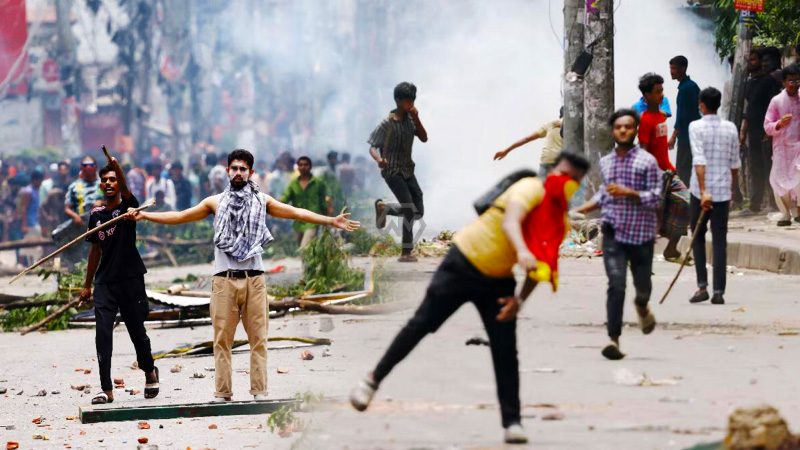- Thousands of students protest against PM Sheikh Hasina over corruption and authoritarianism.
- Claims of external interference by Pakistan’s ISI are yet to be confirmed.
- Stranded Bangladeshis in West Bengal face uncertainty and distress due to violence and communication disruptions.
Thousands of students in Bangladesh have taken to the streets in protest against Prime Minister Sheikh Hasina, accusing her government of corruption, authoritarianism, and economic mismanagement.
Amidst the unrest, allegations have surfaced regarding possible interference by Pakistan’s Army and ISI, though these claims remain unverified. The turmoil has also led to significant disruptions, with many Bangladeshis stranded in West Bengal, India.
Bangladesh in Crisis: Student Protests and Stranded Citizens Amidst Political Unrest
The recent wave of protests in Bangladesh, led predominantly by students, has cast a spotlight on the growing dissatisfaction with Prime Minister Sheikh Hasina‘s administration. Protestors cite corruption, economic hardships, and an authoritarian grip on power as primary reasons for their unrest. The demand for fair elections and democratic reforms echoes across the nation, revealing deep-seated frustrations with the current government.
In addition to internal grievances, the unrest has been marred by allegations of external interference. Reports suggest possible involvement of Pakistan’s ISI in exacerbating the situation, though concrete evidence is lacking. Such claims add a layer of complexity to the already volatile political landscape in Bangladesh, where suspicion of foreign meddling often intertwines with domestic discontent.
The impact of the turmoil extends beyond Bangladesh’s borders. In West Bengal, India, many Bangladeshis find themselves stranded due to the suspension of train services and heightened border controls. These individuals, who traveled for medical, educational, or other purposes, now face uncertainty and anxiety about their ability to return home safely.
Communication disruptions have compounded the distress of these stranded individuals. Many have been unable to contact their families, leaving them worried about the safety and well-being of their loved ones amidst the violence. The situation underscores the broader human cost of political instability, affecting not just those within the country but also those caught in the crossfire abroad.
The ongoing political unrest in Bangladesh underscores the urgent need for addressing both internal grievances and external influences to restore stability. Ensuring transparent governance and democratic reforms could pave the way for a more peaceful and prosperous future.
“The demand for fair elections and democratic reforms echoes across the nation, revealing deep-seated frustrations with the current government.”



